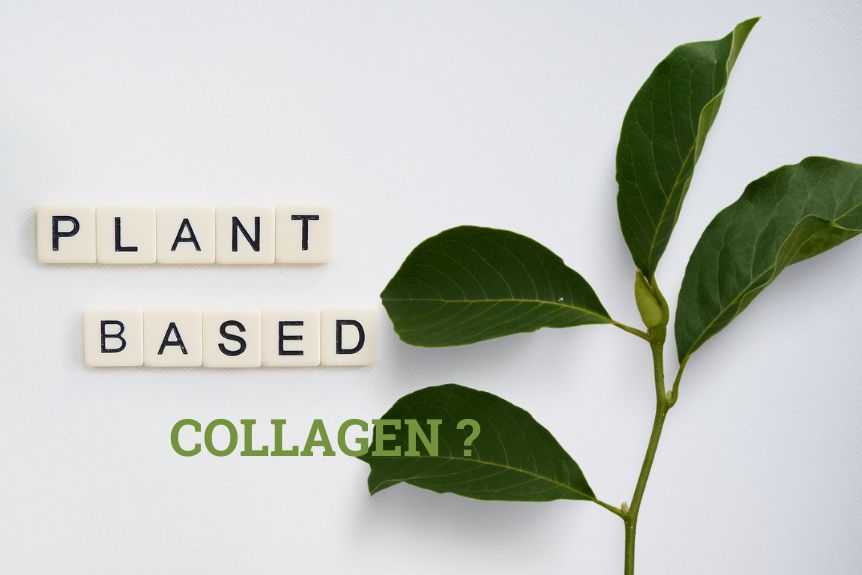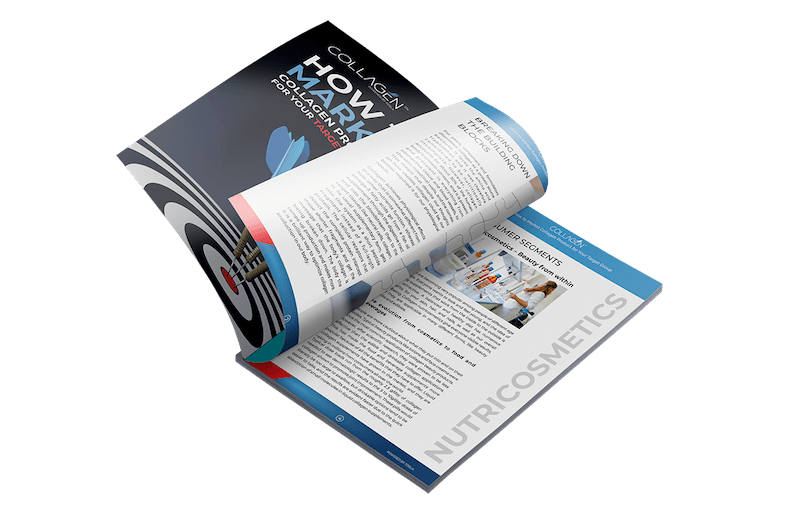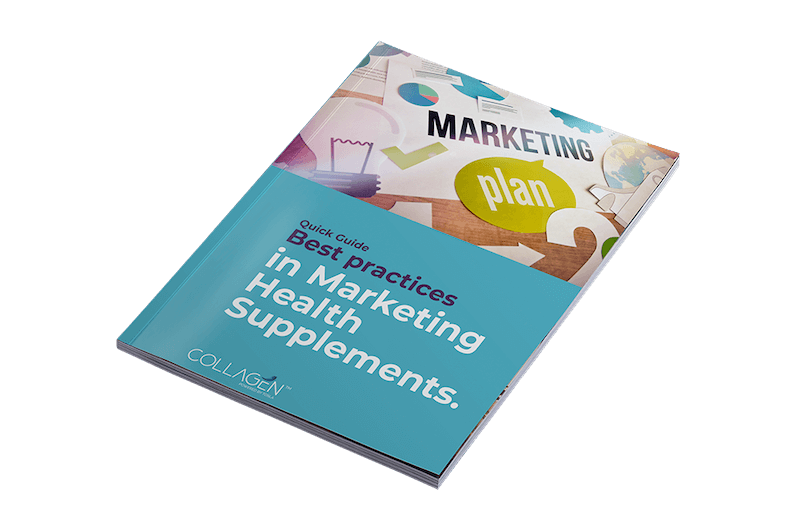In today’s constantly evolving landscape of nutricosmetics, collagen-based supplementation no longer stands as a novelty. Instead, it remains a subject of considerable intrigue, consistently drawing the attention of beauty enthusiasts. Collagen, a crucial protein for maintaining the health and elasticity of our skin, has traditionally been sourced from animal-derived products. However, with the growing popularity of veganism and the desire for cruelty-free alternatives, vegan collagen has emerged as a promising concept.
The Misleading Term: Vegan Collagen
The overview of the current state of vegan collagen products in the market sheds light on the miscommunication of the term itself. Namely, what is available on the market today are not vegan collagen products but rather “vegan collagen boosters.” These products do not contain collagen itself but are designed to stimulate the body’s natural collagen production. The distinction is crucial, as it clarifies that vegan collagen has yet to become a reality.
A Glimpse into the Distant Future
The hope for genuine vegan collagen lies in recent bioengineering breakthroughs. Scientists have been exploring a revolutionary process known as recombinant protein production. This method harnesses the power of fermentation to create a collagen-like protein entirely free from animal involvement. Unlike traditional collagen extraction methods, recombinant protein production does not require animals to be part of the process. It represents a significant leap towards truly vegan collagen.
The Promise of Vegan Collagen
The testing of this innovative approach reports that the resulting product is virtually indistinguishable from conventional collagen in terms of sensory properties and appearance. This may suggest that vegan collagen can provide a cruelty-free alternative to traditional collagen without compromising on quality.
However, we need to remain cautious and take a scientific approach to this matter. Even though the technology behind vegan collagen is promising, rigorous clinical trials are needed to assess its effectiveness compared to conventional collagen and placebos. Only through such thorough research can we truly understand the potential benefits of vegan collagen.
The Processes Behind Vegan Collagen
To gain a comprehensive understanding of concerned topic, there is another important thing we should not forget about – the production processes behind it. In this innovative method, a gene responsible for collagen production is inserted into bacterial or yeast cells. Under carefully controlled conditions, these microorganisms produce the collagen-like protein, which is later harvested. This technique has been in use since the 1970s and has played a pivotal role in various applications, including vaccine production and the modification of crop resistance.
Not All Sunshine: Recognizing Challenges
1. The Ethical and Environmental Concerns
Despite its promise, there are concerns surrounding the acceptance of vegan collagen by consumers who prioritize natural and organic products. The idea of genetically modified organisms (GMOs) being used in the production process may raise ethical and environmental questions. Some individuals who embrace veganism for ethical reasons might hesitate to consume products derived from GMOs.
2. The Cost and Availability Challenge
Another significant challenge facing vegan collagen is its production cost. The process of producing GMO vegan collagen is currently extremely expensive, which could result in higher product prices. This may limit its accessibility to consumers, especially if it is primarily used in cosmetic surgery or high-end beauty products.
3. Production Scale and Regulatory Hurdles
Furthermore, the current production of vegan collagen is limited to a laboratory scale. Scaling up to industrial production remains a complex challenge. Additionally, these products are classified as novel foods in the EU, requiring extensive safety testing. In the USA, they need to obtain Generally Recognized as Safe (GRAS) status, adding further complexity to the regulatory process. These factors indicate that the mass production and availability of vegan collagen remain a far-fetched and highly unlikely scenario.
4. The Proven Value of Conventional Collagen
In conclusion, while the concept of vegan collagen holds promise for those seeking cruelty-free beauty solutions, it’s essential to remember that conventional collagen has a proven track record of delivering results in the realm of nutricosmetics. For now, consumers can rely on traditional collagen supplements to support their skin’s health and appearance while also making a positive contribution to sustainability. Since collagen is a byproduct, choosing to utilize collagen serves as preventing its wasteful disposal and recognizing its inherent value in the beauty industry.
As the nutricosmetics industry continues to evolve, we must weigh the pros and cons of emerging alternatives, ensuring that they align with our values and priorities as consumers. Vegan collagen may represent the future of cruelty-free beauty, but until comprehensive research is conducted and production hurdles are overcome, traditional collagen remains a reliable choice for those pursuing beauty from within.









